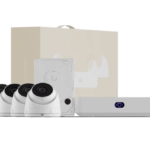Perplexity, the AI-powered search engine vying to be Google’s successor, has unveiled a new subscription tier aimed at paying publishers for their work. Called Comet Plus, the $5-per-month service is part of a new revenue-sharing program designed to compensate media outlets whenever their content is used to answer a query or when Perplexity’s AI agents browse their sites on a user’s behalf.
Key Takeaways
- A New Revenue Stream: Perplexity is launching “Comet Plus,” a $5/month subscription that shares revenue with media partners. Existing Perplexity Pro and Max subscribers will get it for free.
- Paying for “Agent” Traffic: The model is designed to compensate publishers not just for search citations but for “agent actions”—when Perplexity’s AI browses a website for a user, bypassing the normal ad-supported experience.
- The Peace Offering: The company has set aside an initial $42.5 million revenue pool to distribute among participating publishers, with plans for the fund to grow as more users subscribe.
- A Legal Shadow: This move comes as Perplexity faces mounting legal pressure, including new copyright-infringement lawsuits from major Japanese publishers Nikkei Inc. and Asahi Shimbun Co.
How Perplexity’s New Pay-for-Play Model Works
In the brave new world of AI search, you don’t always need to click a link. You ask a question, and the answer appears, synthesized from multiple sources. While convenient for users, this has terrified publishers who rely on clicks for survival. Perplexity’s new program attempts to patch this financial leak.
The system is built to compensate publishers in three distinct ways. The first is familiar: if a user clicks out from Perplexity to a publisher’s website, that’s a human visit. The second is for search citations; when Perplexity uses an article to generate one of its AI summaries, the publisher gets a cut.
The third, and most novel, is compensation for “agent actions.” This happens when you deploy Perplexity’s new Comet browser to perform a task for you, like summarizing recent industry trends. The AI agent visits the necessary web pages, zooming past ads and paywalls you might have seen. As Perplexity explains it, this “agent traffic” is a new kind of interaction that its previous deals didn’t cover. Publishers will get 80 percent of the Comet Plus revenue, with the remaining 20 percent going to Perplexity’s “compute” costs.
The Carrot: An AI-Powered Peace Treaty
Perplexity is framing this as a forward-looking move to create a better internet, one free from what it calls “spammy clickbait” and “endless blue links.” In a statement shared with CNET, the company’s head of communications, Jesse Dwyer, argued that “the right business model for the AI age should ensure publishers and journalists benefit from improving the internet.”
The model feels a bit like a mashup of a tip jar and a streaming service. Think Apple News+, but for AI. Instead of a simple licensing deal, this model dynamically allocates revenue based on how often a publisher’s content is actually used by the AI. By setting aside an initial $42.5 million, Perplexity is hoping to show it’s serious about getting publishers on board and building a sustainable ecosystem where high-quality information is rewarded.
The Stick: A Growing Storm of Lawsuits
Of course, Perplexity isn’t building this new system in a vacuum. The company has been walking a legal and ethical tightrope for months. It’s been criticized for plagiarism, and like other AI firms, it’s facing a barrage of copyright lawsuits from media companies who argue their content is being used without permission or payment.
Just as it announced its new revenue-sharing plan, news broke that two of Japan’s largest newspaper publishers had filed a joint lawsuit against the company, seeking a combined $29.4 million in damages. The publishers accused Perplexity of “continuous and large-scale freeloading on journalists’ time and effort,” warning that the practice, if unchecked, could “shake the very foundations of democracy.” This follows litigation from other major players, showing that the media industry is done waiting for AI companies to ask for permission. In this light, Comet Plus looks less like a visionary blueprint and more like a desperate attempt to offer a truce.
Why It Matters
Perplexity’s new model is one of the first concrete attempts to answer the biggest existential question looming over the AI era: How do we pay for the content that fuels these all-knowing machines? The internet has always been a messy trade-off between “free” information and the ads or subscriptions that support it. AI agents that browse the web on our behalf threaten to upend that entire model by consuming the content without triggering the monetization.
This isn’t just about search results anymore. It’s about a future where AI assistants perform complex tasks, read articles, and summarize reports for us. Perplexity is trying to build the tollbooths for this new AI-driven highway. The big question is whether publishers will agree to the toll’s price. Is a small slice of a user’s $5 monthly subscription a fair price for unlimited access to a publication’s entire library, especially when that publisher might charge $20 or $30 for a direct subscription? This initiative is a critical test case, and its success or failure will send ripples across both the AI and media industries.
Conclusion
Perplexity is simultaneously trying to build a bridge to publishers with its Comet Plus plan while fending off legal attacks from those same publishers. It’s an ambitious experiment to redefine the value of information in an AI-driven world. But whether publishers see this as a genuine partnership or a lowball offer to assuage legal guilt remains to be seen. The outcome will be a powerful signal for the future of journalism, AI development, and what it means to browse—or be browsed for—on the web.
Sources
- Perplexity has cooked up a new way to pay publishers for their content
- Perplexity AI Browser Becomes Publishing’s New Revenue Stream
- Perplexity Will Share Revenue From AI Searches With Publishers
- Perplexity Sued By Japanese Publishers In Copyright Case
- Perplexity to Let Publishers Share in Revenue From AI Searches







